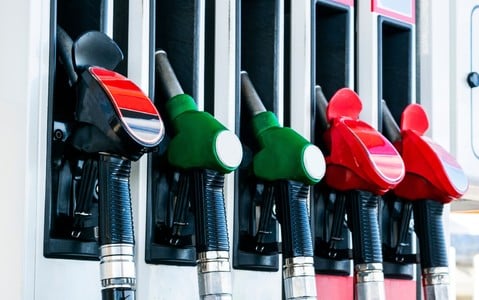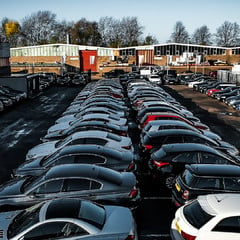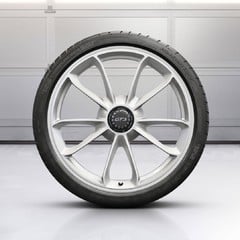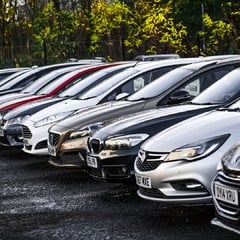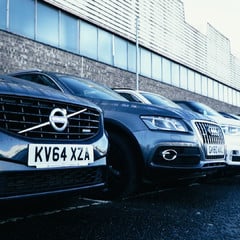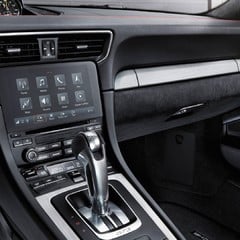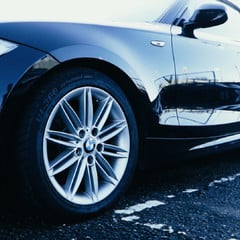Petrol vs. Diesel: What’s the Difference?
Find out what separates these fossil fuels from each other
While there are plans in place to phase out petrol and diesel vehicles in the UK by 2035, these fossil-fuelled powered cars continue to maintain their dominance on our roads and remain the top choice in the used car market.
As a result, if you’re in search of a new motor, the decision of which fuel to opt for is likely still a relevant debate, and while both have their pros and cons, it’s not always obvious what they may be. In this article, we’ll shed light on the differences between petrol and diesel so that you can determine which is best for you.
What is petrol and diesel?
In their most basic forms, petrol and diesel are types of liquid fuel derived from crude oil, but there are fundamental differences in their chemical composition and how they are distributed at the pump. Let us explain…
On the one hand, petrol is lighter and more volatile than diesel, meaning it evaporates quickly. At the petrol station, you’ll find it labelled as E5 or E10 indicating the percentage of ethanol blended with the fuel.
On the other hand, diesel is much denser and less volatile which means it contains more energy per litre compared to petrol. When you fill your car up with diesel, you’ll find it labelled as B7 at the pump indicating the percentage of biodiesel the fuel contains.
How do petrol and diesel engines work?
Although both petrol and diesel vehicles operate using the traditional internal combustion engine, differences in fuel composition allow each to work in slightly different ways when it comes to ignition.
In a petrol engine, the fuel is mixed with air before it is compressed and ignited by a spark plug. This creates a controlled explosion that drives the pistons and powers the engine.
Whereas, diesel engines compress the air first and then inject the fuel into the cylinder. The heat from the compressed air ignites the fuel, creating a controlled explosion.
Which fuel has better performance?
There are some key differences in the performance of petrol and diesel engines which has influenced their uses over time. You’ll find petrol commonly fuels passenger cars while diesel powers larger, heavy-duty vehicles. Here’s why:
Petrol engines tend to provide better power output at higher RPMs than diesel engines. This means they can reach faster top speeds and offer more responsiveness and agility. They are also typically smoother and quieter to drive.
Diesel engines are instead renowned for their high torque output, especially at low RPMs, which gives them strong pulling power and better acceleration from a standstill than petrol cars.
Which has better fuel economy?
There’s a pretty straightforward answer to this question: diesel engines have always been known for their superior fuel efficiency when compared to petrol. This is mainly due to the higher density of the fuel which enables diesel engines to extract more energy, resulting in better mileage.
Achieving more miles to the gallon is especially true when it comes to long motorway journeys where driving at a constant high speed allows diesel engines to work most efficiently.
Which fuel is better for the environment?
On initial investigations, diesel engines were seen as better for the environment as they produced less carbon dioxide (CO2) emissions than petrol engines, which is the main greenhouse gas that contributes to global warming.
However, over time it was discovered that diesel engines emit more nitrogen oxides (NOx) and particulate matter (PM), which are harmful pollutants that affect air quality and human health.
Therefore, the answer to this question ultimately depends on what you consider to be more eco-friendly. Although, undoubtedly both these fuels are bad for the environment.
Which fuel is more cost-effective?
A main factor that will likely influence your decision in choosing between a petrol or diesel car is cost-effectiveness. Identifying which costs more to buy, own, and run depends on several factors that we’ve covered below:
- Purchase price: From the get-go diesel cars are usually more expensive to buy than petrol cars as they have more complex and durable engines.
- Maintenance: Due to their complexity, diesel vehicles are generally more expensive to repair and maintain over time.
- Insurance: More expensive repairs of diesels may lead to higher insurance premiums.
- Longevity: Despite higher purchase and maintenance costs, diesels are much more durable and last a lot longer than petrol cars. This means they also tend to retain their value better.
- Fuel: While diesel fuel itself tends to cost more than petrol, due to better fuel economy you’ll likely end up saving money at the pump by running a diesel vehicle.
Which fuel is best for me?
The answer to this question has a fairly generic answer, despite all the complexities. It’s usually concluded that if you’re going to be driving lots of miles on longer journeys, then diesel may be the better option for you. This is because of the better mileage and durability of their engines.
If you’re more likely to be making lots of short journeys, racking up not quite as many miles in and around town, then a petrol car might be the better choice for you. This is because they will be cheaper to purchase and maintain, quieter and smoother to drive, whilst also producing less harmful emissions in urban areas.
Get your next petrol or diesel car at 1 Stop Car Sales
Now that you know the differences between petrol and diesel cars and potentially which is best for you, it’s time to make a decision on what your next car will be! At 1 Stop Car Sales, we’ve got over 100 vehicles in stock for you to choose from, powered by petrol, diesel, and hybrid engines. So what are you waiting for? Take a look at our online showroom today!

